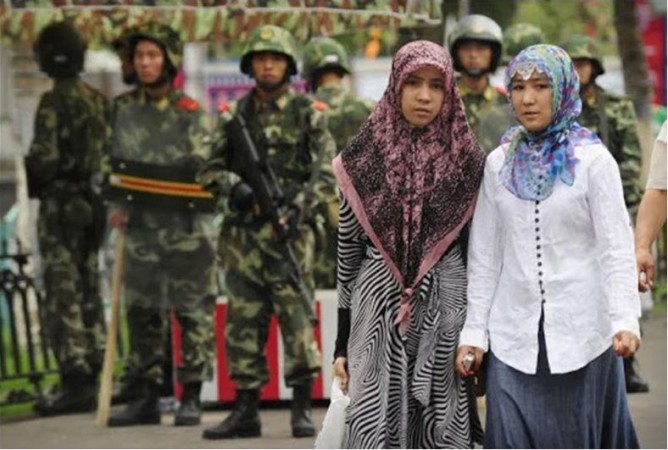
BEIJING: Thousands of images from the core of China's highly secretive mass detention system in Xinjiang, as well as a shoot-to-kill policy for those who try to flee, are among a massive trove of material hacked from regional police computer servers.
The so-called Xinjiang Police Files were handed up to the BBC earlier this year.
They can be proved to offer substantial new insights into the imprisonment of the region's Uyghurs and other Turkic minorities after months of investigation and authentication.
Their release coincides with the arrival in China of Michelle Bachelet, the UN Human Rights Commissioner, for a contentious visit to Xinjiang, with critics fearing that her itinerary will be tightly controlled by the government.
According to the BBC, the collection demonstrates China's use of "re-education" camps and official prisons as two separate but related systems of mass confinement for Uyghurs in unprecedented detail, casting doubt on the country's well-honed public narrative on both.
Internal police directives, guarding rosters, and never-before-seen photographs of detainees contradict the government's assertion that the re-education centres established across Xinjiang since 2017 are nothing more than "schools," according to the report. And its extensive use of terrorist accusations, which has resulted in the incarceration of many thousands more people, has been exposed as a pretext for a parallel kind of internment, with police spreadsheets full of arbitrary, punitive sentences.
Pakistan govt says polls to be held early next year, reacts demands of Ex-PM Khan
Azerbaijan, Armenia are ready to start work of the Commission on border delimitation
UN General Assembly resolution urges efforts to mitigate food security crisis